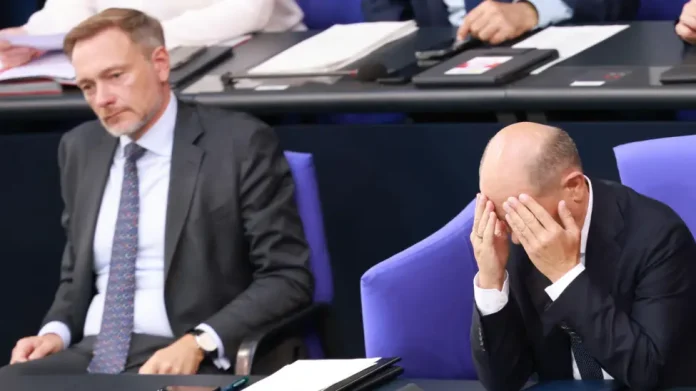Germany’s opposition leader, Friedrich Merz, called for an immediate vote of confidence in parliament following the collapse of Chancellor Olaf Scholz’s ruling coalition.
The election of Donald Trump as US president has reshaped the global political landscape. At a press conference on Wednesday evening after the sacking of his finance minister, Christian Linder, Scholz outlined a plan of action for the coming weeks, including holding a formal confidence vote in January.
However, on Thursday morning, Merz rejected the timeline, saying there was “absolutely no reason to wait to put off the confidence vote until January.”
The end last night is the end of the traffic light [Scholz’s three-way coalition government] and hence the end of this mandate.
Merz, who is widely tipped to succeed Scholz as chancellor, has been vocal in his support for Ukraine, especially amid the threat of US aid cuts. A fierce debate over Germany’s budget priorities led to a fatal rupture with the FDP, with Scholz expressing hope that he would be able to reach a new budget agreement in the interim.
The Christian Social Union took a tougher tone, with its parliamentary leader Alexander Dobrindt saying that Germany in its current state, with weak economic growth and a crisis in production, “simply can’t afford to be in a chancellor coma.” Allowing such a government without a majority in parliament to last until spring would be “arrogant and disrespectful” to voters, he said.
However, Foreign Minister Annalena Baerbock defended Scholz’s timetable as “paving the way for an orderly transition,” including time for parties to make their case to voters during the election campaign.
Vice Chancellor Robert Habeck also said the Cabinet would continue to pass legislation. However, he also recognised that the break-up of the coalition goes beyond the day-to-day political debate.
The political upheaval in Germany comes at a time of deep uncertainty in Europe, including over the future of Ukraine, and shaky leadership in Berlin and Paris. French President Emmanuel Macron also called a snap election earlier this year, facing political pressure.
